On October 4th, The Paper reporters visited and watched the film at the China Film Museum in Beijing. In addition to watching movies, many audience members also lingered at the 60-year theme exhibition of the Hundred Flowers Awards for Popular Films held in the museum.
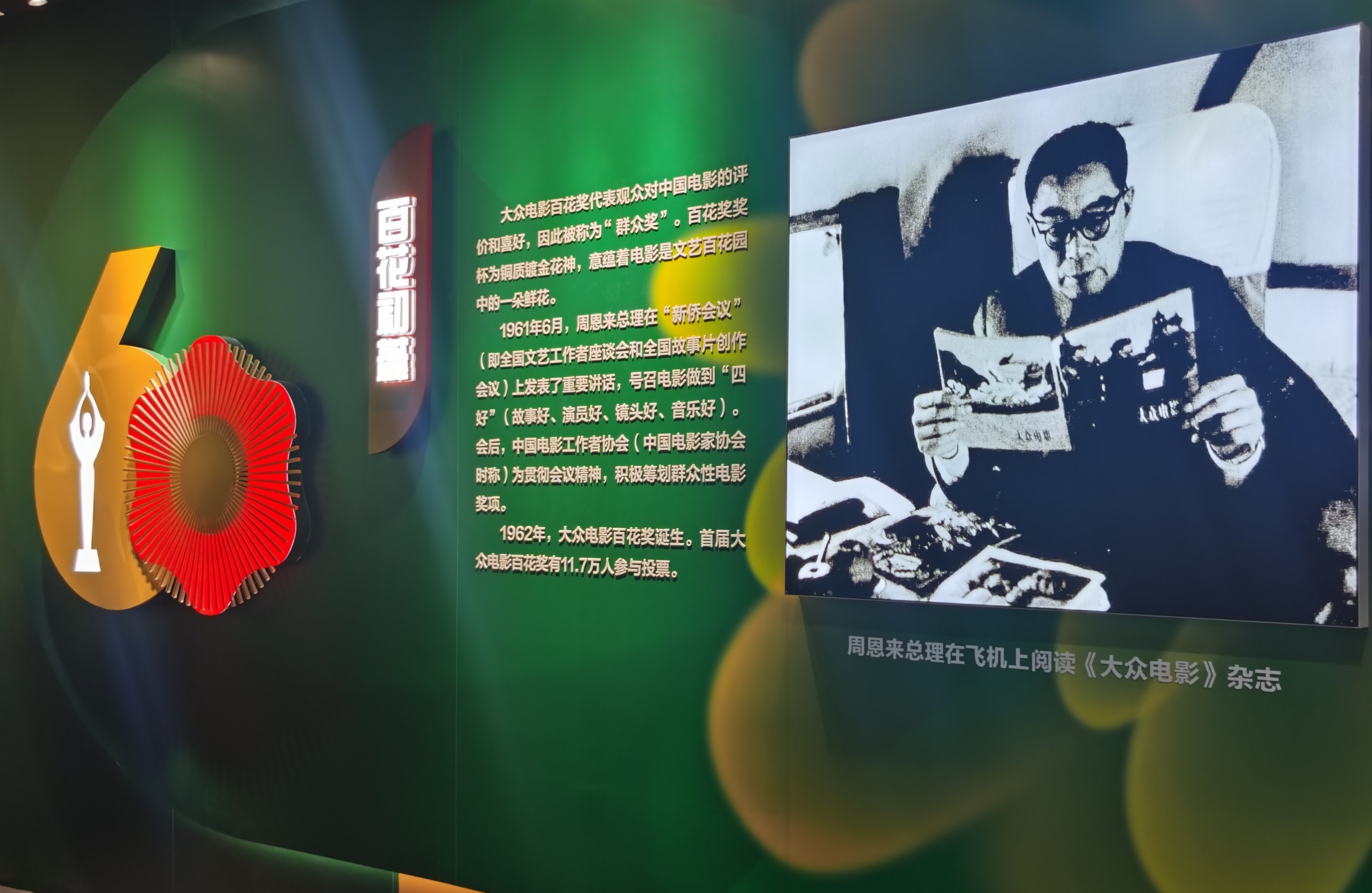
Entrance to the 60 Years Theme Exhibition of Popular Film Hundred Flowers Awards
On July 28 this year, the 36th Popular Film Hundred Flowers Awards ceremony series opened in Wuhan-it is worth mentioning that 2022 is the 60th anniversary of the Hundred Flowers Awards. Unlike the Golden Rooster Award, the highest award for Chinese films, which is judged by experts, the Hundred Flowers Award for Chinese Films is a film award judged by the common people.
During the golden autumn season, the China Film Museum, in cooperation with the China Film Association and the China Federation of Literary and Art Circles Film Art Center, jointly launched the Hundred Flowers Awards 60th anniversary themed film screening event (which can be viewed online for free by the China Film Museum WeChat public account "Friends of Film Bodies") to the general audience. It fully demonstrates the glorious history of the development of the Hundred Flowers Award. On September 8, under the guidance of the China Film Association, hosted by the China Federation of Literary and Art Circles Film Art Center and the China Film Museum, and supported by the popular film magazine, "Hundred Flowers Deep in the Hearts of the People - The 60 Years Theme Exhibition of the Popular Film Hundred Flowers Award" was held at the China Film Museum. opening.

Theme exhibition site
It is reported that the exhibition lasts for four months. It mainly selects the representative award-winning film works and pictures of award-winning film characters published by Popular Film since the establishment of the Hundred Flowers Award 60 years ago, the gold-plated Hundred Flowers Award round carving trophies in different periods, and commemorative activities videos. and other precious materials and historical materials, together with the majority of fans and the public to review the glorious years that the audience and the film have gone through together.
"A hundred flowers bloom, a hundred schools of thought contend", the only mass film award
Looking back on the past, the Hundred Flowers Award was founded in 1962 by the largest film publication in China at that time, "Popular Film" magazine. The film award is also the only literary award named by Premier Zhou Enlai during his lifetime. The selection process of the Hundred Flowers Awards emphasizes the participation of the whole people. Readers fill in the ballots published in "Popular Movies" and vote for the audience's favorite Chinese film feature films, film actors and other awards of the year.
The Hundred Flowers Award for Popular Films is named after "Hundred Flowers" to reflect the policy of "let a hundred flowers bloom and a hundred schools of thought contend" put forward by Chairman Mao Zedong at the enlarged meeting of the Political Bureau of the Central Committee in 1956. .
In 1961, Premier Zhou Enlai delivered an important speech at the "New Overseas Chinese Conference" (that is, the National Symposium of Literary and Artistic Workers and the National Feature Film Creation Conference), calling on films to achieve "four good" (good stories, good actors, good shots, Music is good), China Film Workers Association (called China Film Association at the time) actively planned mass film awards in order to implement the spirit of the meeting.
In 1962, the Hundred Flowers Awards for Popular Films was born, and 117,000 people voted in the first session. The Hundred Flowers Award trophy is a bronze gilded God of Flowers, which means that the movie is a flower in the Garden of Literature and Art, and there are legends and customs of believing in the God of Hundred Flowers among Chinese folk.
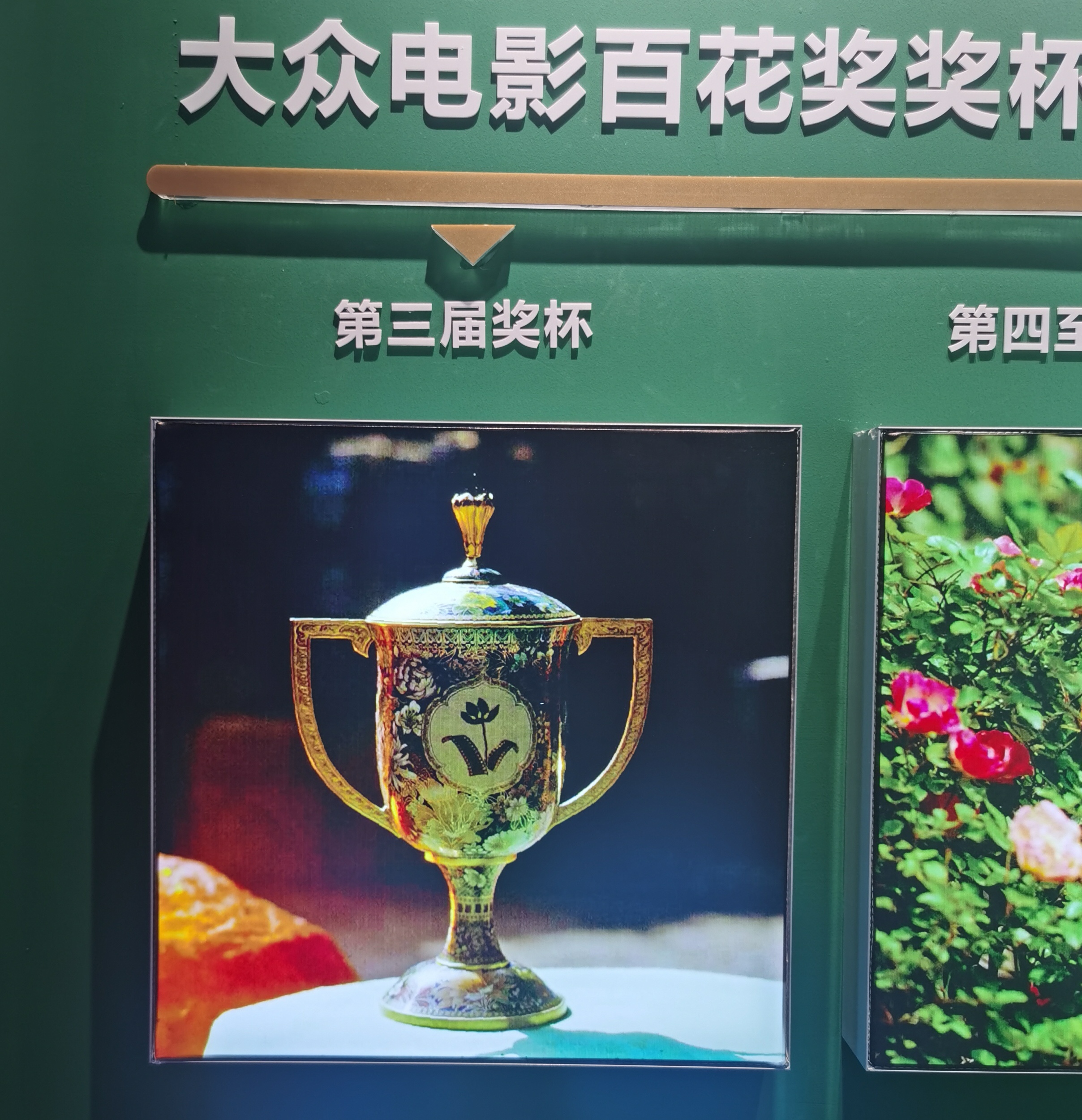
The third (1964) Hundred Flowers Award trophy is made of copper enamel, and the leaf of a flower in the center of the cup is in the shape of a film
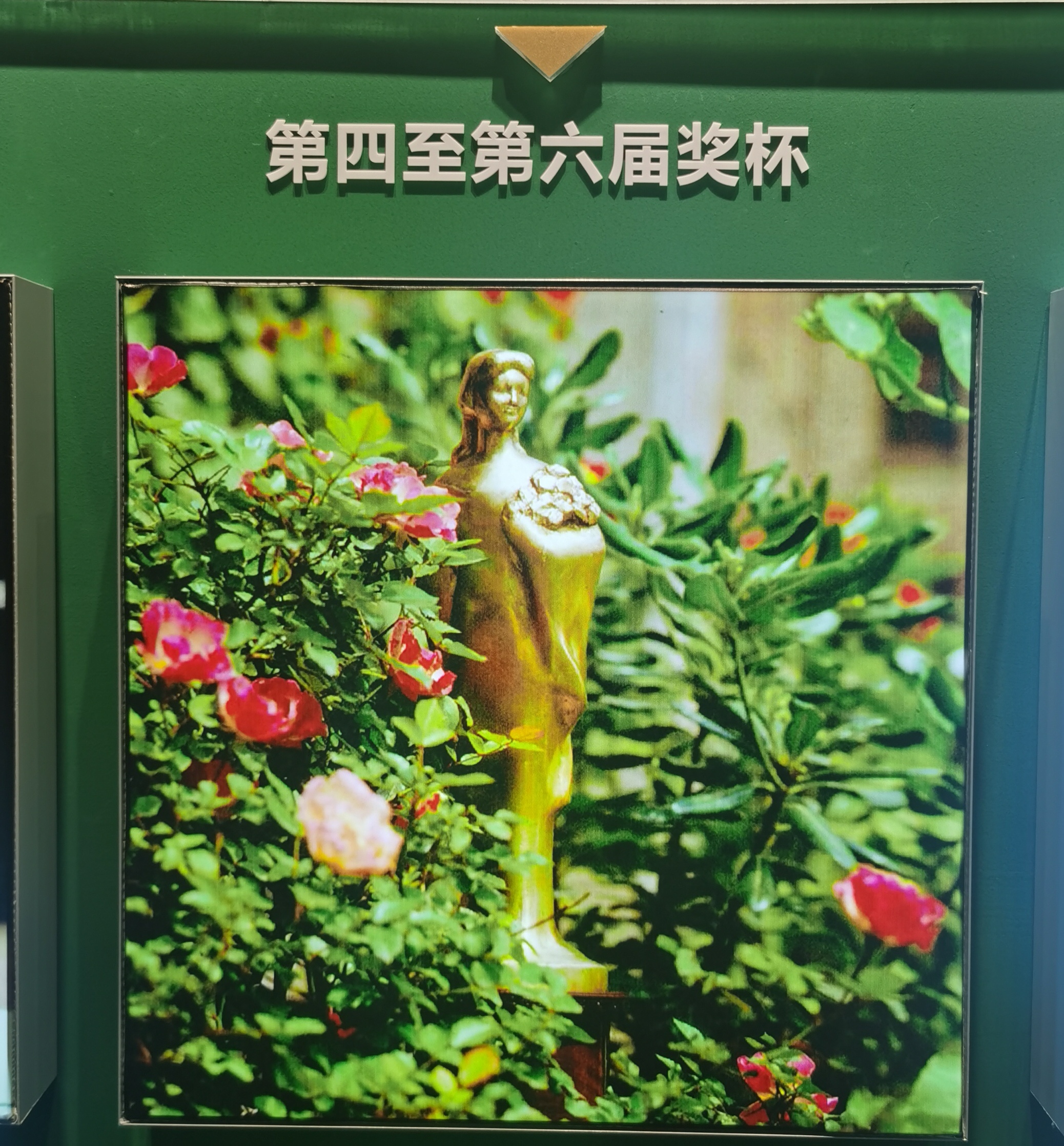
The fourth (1981) to the sixth (1983) trophies are in the shape of a flower god holding a bouquet in one hand
At the theme exhibition, the audience can see the pictures and real objects of the previous Hundred Flowers Award trophies. Among them, the third (1964) Hundred Flowers Award trophy is made of copper enamel, and the leaf of a flower in the center of the cup is in the shape of film. The fourth (1981) to the sixth (1983) trophies are in the shape of a flower god holding a bouquet in one hand. Since then, the shape of the trophy has been the image of the female flower god.
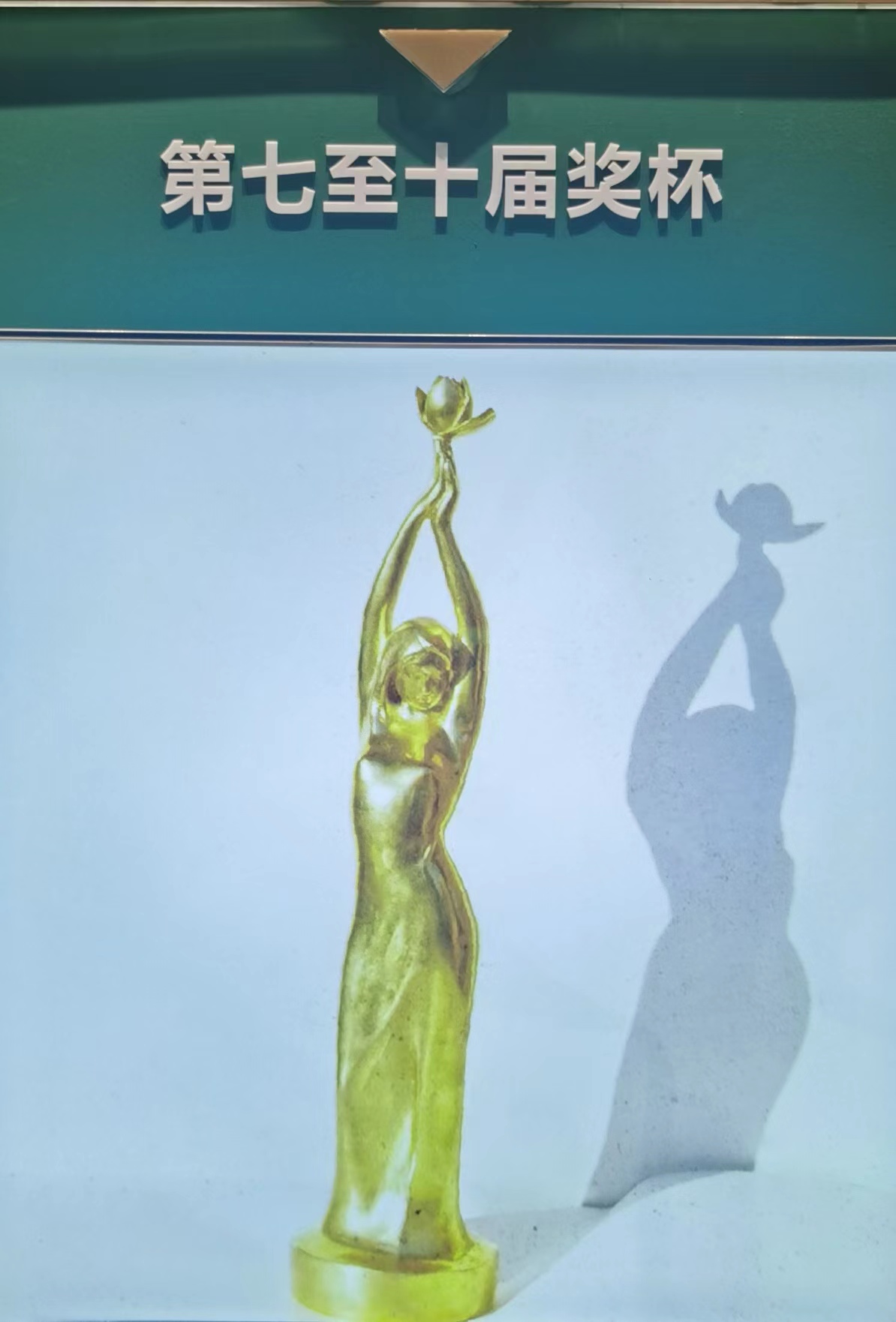
The 7th (1984) to 10th (1987) trophies are in the shape of the flower god raising his hands and holding up a flower
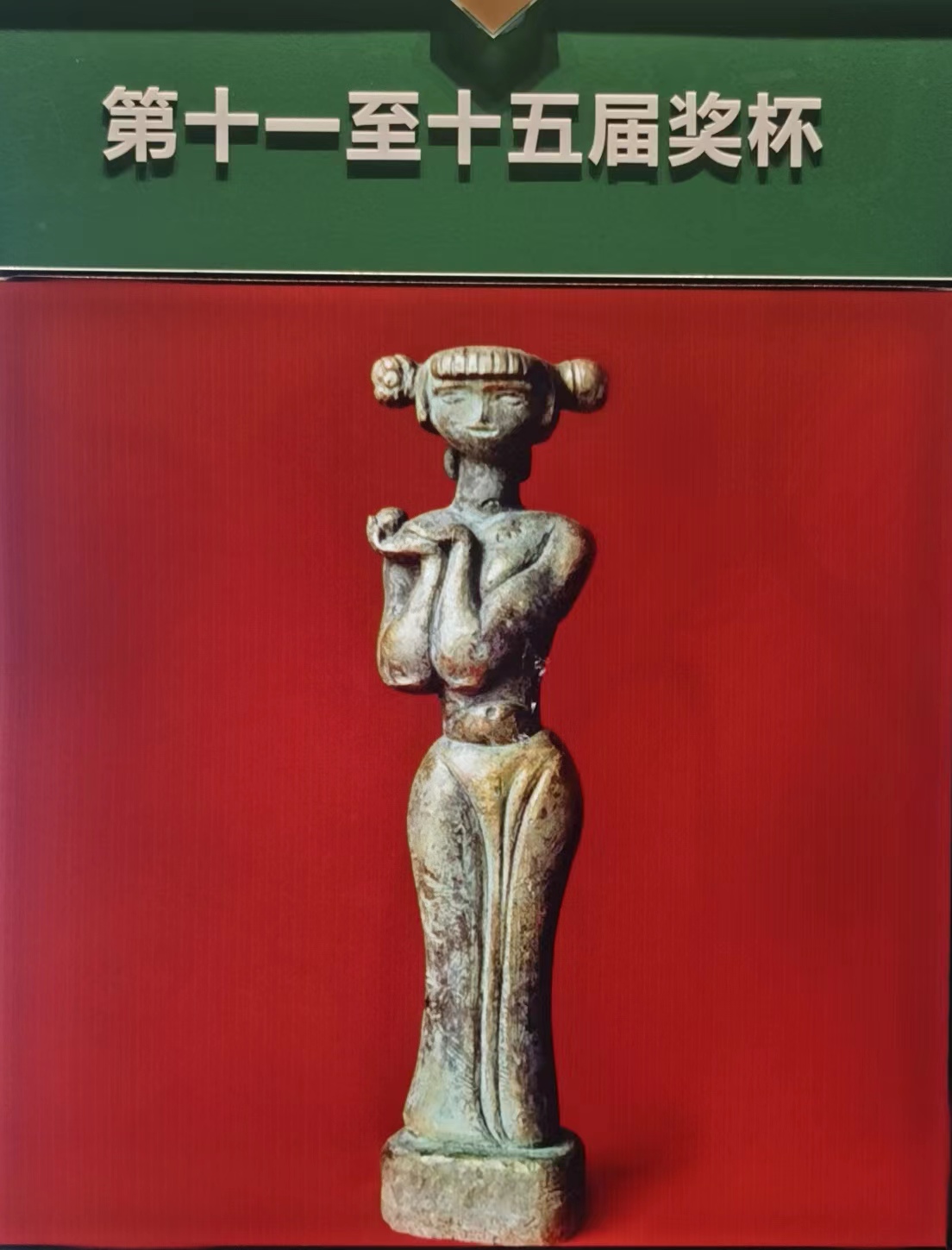
The 11th (1988) to 15th (1992) trophy shapes are classical girl images
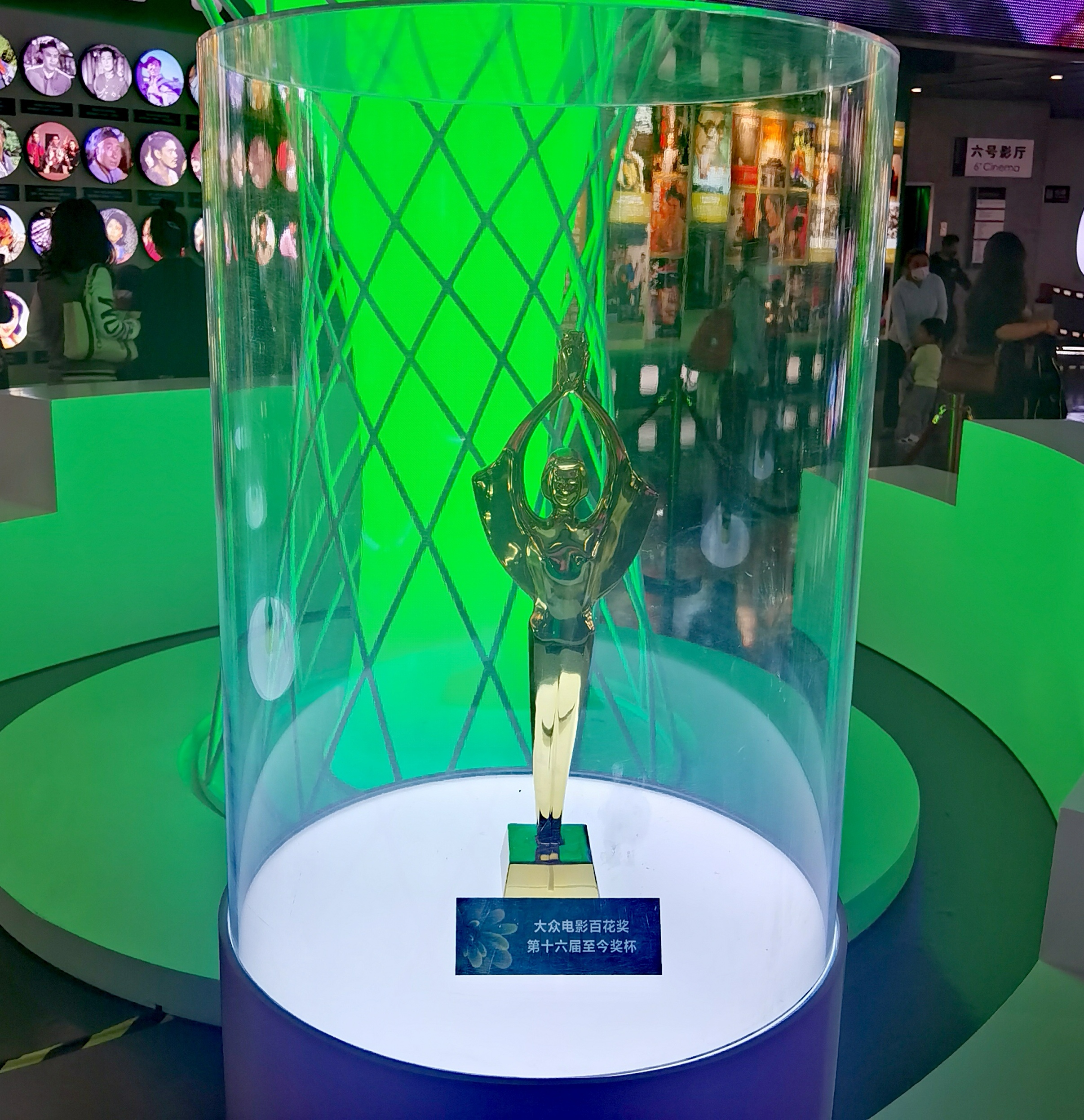
The 16th (1993) trophy is in the shape of a flower god with short hair and ears holding up a flower.
The 7th (1984) to 10th (1987) trophies are in the shape of the flower god raising his hands and holding up a flower. The 11th (1988) to 15th (1992) trophies were shaped like classical girls. The 16th (1993) trophy is in the shape of a flower god with short hair and ears holding up a flower. The trophy is from Yao Yongkang, a famous contemporary Chinese sculptor, potter, and art educator. It has a beautiful shape and is still in use today.
"A Qionghua is extraordinarily popular", there is no trophy for the first award
Many viewers may have questions, why is there no trophy for the first and second Hundred Flowers Awards? It turned out that the "three-year difficult period" had just passed. Due to financial difficulties, all award-winning studios will only receive one certificate, and individuals will receive a commemorative medal and the calligraphy of the leaders of the literary and art circles as a prize.
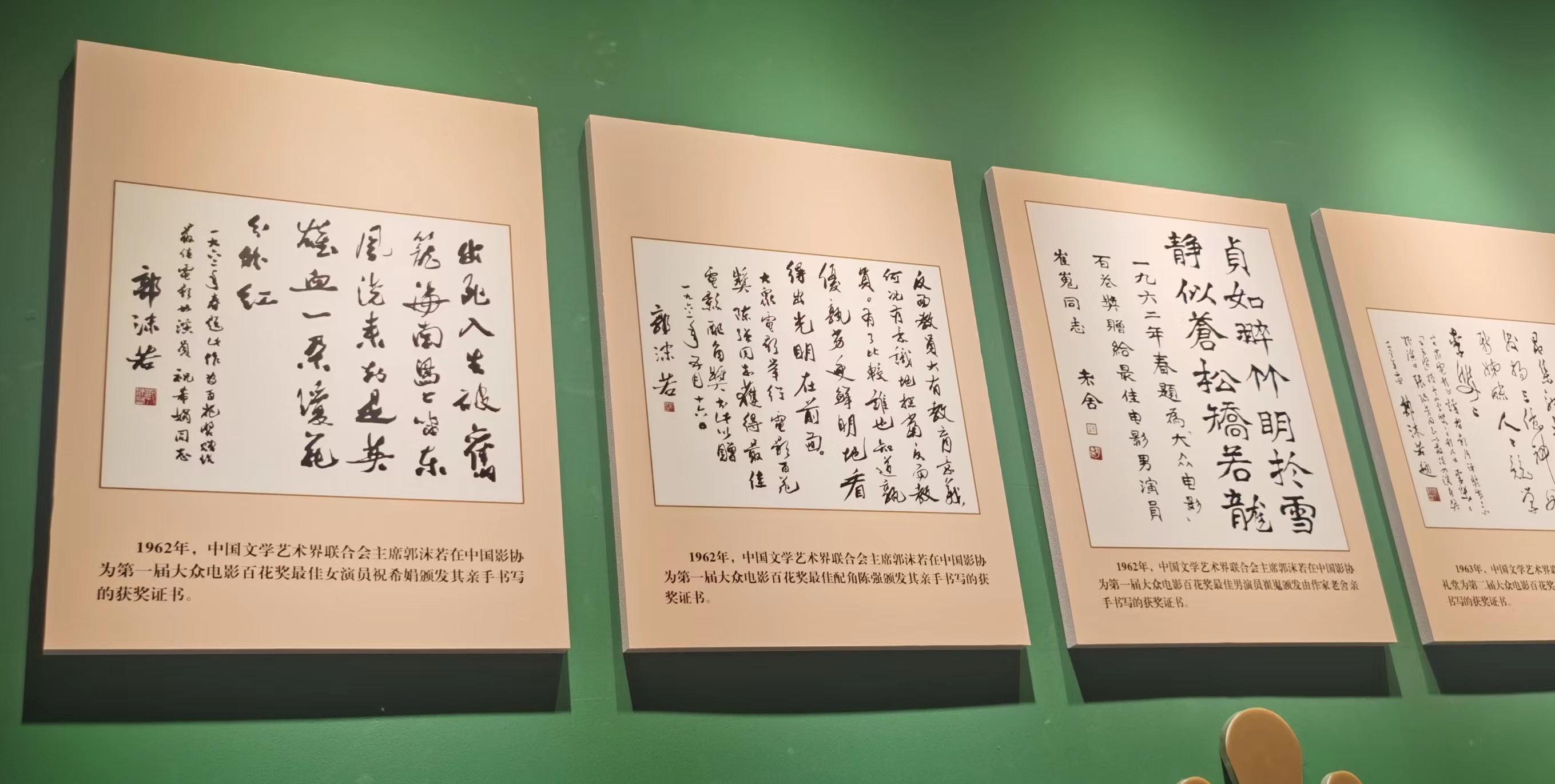
In 1962, at the first Hundred Flowers Awards ceremony, Guo Moruo, Lao She and others wrote an inscription to the award-winning actors
The historical documents displayed in the exhibition hall restore the situation of the awards at that time: from May 22 to 23, 1962, the first Hundred Flowers Award Presentation Conference was held in the auditorium of the Beijing Political Consultative Conference. Premier Zhou Enlai and Vice Premier Chen Yi attended the ceremony with the award-winning actors. Guo Moruo, Zhou Yang, Xia Yan and other leaders from all walks of life attended the event. Chen Yi, Guo Moruo, Mao Dun, Lao She and others also wrote inscriptions for the winners.
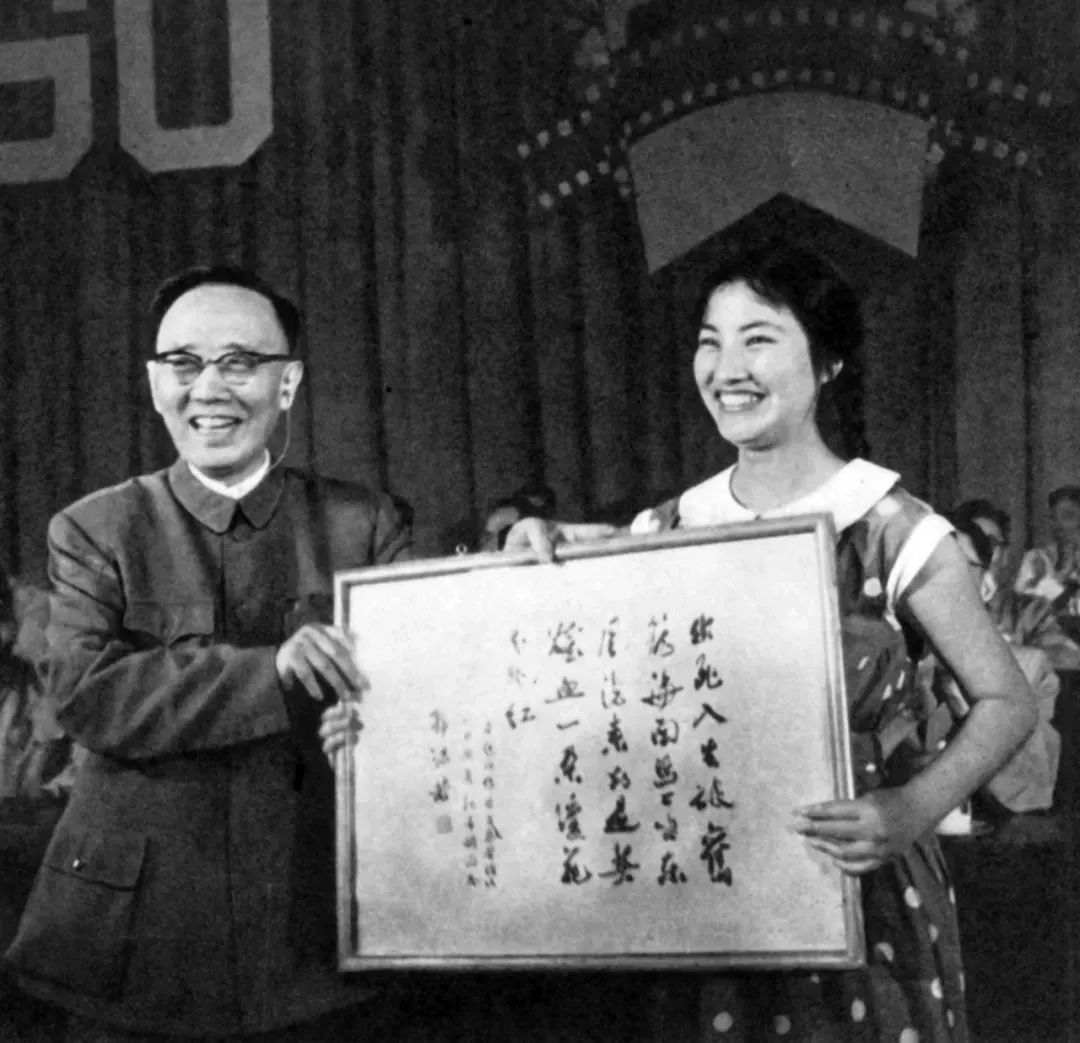
At the first Hundred Flowers Awards in 1962, Guo Moruo wrote an inscription for the best actress Zhu Xijuan and presented the award
The movie "Red Detachment of Women" won the Best Feature Film Award at the first Hundred Flowers Awards. The 24-year-old Shanghai actress Zhu Xijuan, who played "Wu Qionghua" in the film, became the first "Hundred Flowers Queen" in New China. In the same year, Zhu Xijuan was selected as the "22 New China Movie Stars" and was the youngest of the 22 stars.
The reporter noticed that Guo Moruo personally awarded Zhu Xijuan the award and wrote a poem, "Being born into a dilapidated cage, Hainan Island is full of east wind. The blood of heroes is poured out, and a Qionghua is particularly red." Not only did he say the hero of the Red Detachment of Women The spirit also gave great affirmation to Zhu Xijuan's acting skills. It is also worth mentioning that Chen Qiang, the famous actor who played "Nan Batian" in the film, won the Best Supporting Actor Award at the first Hundred Flowers Awards. The inscription Guo Moruo gave him was, "A negative education is of great educational significance, not to mention consciously acting as a negative education."
The best actor in the first popular film Hundred Flowers Award was won by Cui Wei, who played the roles of Zhu Laogong and Zhu Laozhong and his son in the movie "Red Flag". Gui as one of the "22 New China Movie Stars", Cui Wei has transformed into a director in the 1960s. Speaking of which, his appearance is not very handsome, and his ability to become the first "Hundred Flowers Shadow Emperor" in New China is enough to show his superb acting skills. At the award ceremony, the writer Lao She awarded him the award and wrote an inscription, "Chest like the green bamboo bright in the snow, quiet like the pines, like a dragon."
1.6 million votes, Chinese film and popular film Hundred Flowers Awards all the way forward
In 1980, the spring breeze of reform and opening up blew all over China. The Hundred Flowers Awards for Popular Films also resumed the selection that year, and the number of participants hit a peak in mass cultural activities during the same period. Throughout the 1980s, the "Hundred Flowers Award" was the most well-known, most participatory, and most popular mass awarding event in China, and the number of votes was often in the millions.
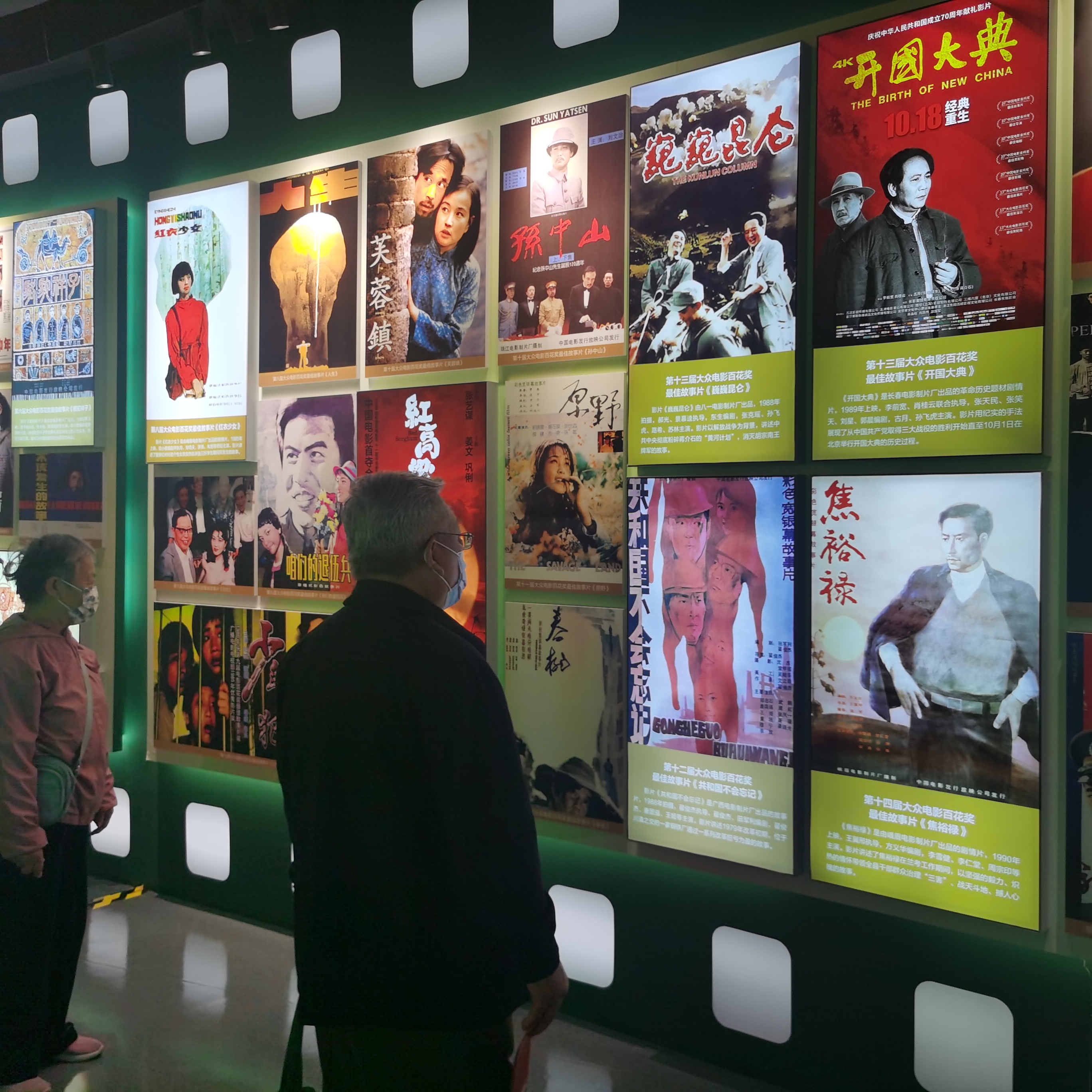
Theme exhibition site
During this period, the themes and styles of the award-winning works of the Hundred Flowers Award for popular films showed rich and diverse temperaments and characteristics. There were both works of art that started from the normal life and emotional history of the people, and bravely faced history and reality, such as "The Return of the Swallow" and "The Return of the Swallow". Furong Town, Red Sorghum, etc., there are also excellent screen works that fully demonstrate the practical character of realism, such as People to Middle Age, Wrangler, The Legend of Tianyun Mountain, etc. The pursuit of the public and the innovation of artists, along with the tide of reform and opening up, are moving forward with the Hundred Flowers Award for Chinese Films and Popular Films.
In 1992, at the request of the majority of film workers, the China Golden Rooster and Hundred Flowers Film Festival came into being on the basis of the popular film Hundred Flowers Awards and the Chinese Film Golden Rooster Awards. The film festival is held once a year, and there is no fixed city, and it is held in rotation. In 2003, the Hundred Flowers Award tried to use 5 million box office as the basis for registration. The following year, the China Film Association explored a shortlist of candidates from the preliminary evaluation of 100 representative theater managers. Zhang Yimou's "Hero", which was released at the end of 2002, had a domestic box office of 250 million yuan, which opened the prelude to a domestic commercial blockbuster. .
In 2005, the "Golden Rooster and Hundred Flowers Film Festival" ended the history of the merger of the Golden Rooster and Hundred Flowers. In 2019, the Golden Rooster Award resumed its annual evaluation and settled in Xiamen for a long time. The Hundred Flowers Awards for Popular Films are still held in rotation in various provinces and cities to meet the cultural needs of the people in different regions to the greatest extent. During this period, a number of new mainstream films represented by "The Great Cause of the Army", "Wandering Earth", "Wolf Warrior 2", "My Motherland and Me", and "1921" shined on the stage of the Hundred Flowers Awards.
【Service Information】
Opening hours: Tuesday to Friday 9:00-17:00 (16:30 stop admission)
Saturday, Sunday and statutory holidays 9:00-20:30 (2nd, 3rd and 4th floor exhibition halls are open until 18:00, the first floor exhibition area is open until 20:30, and admission is closed at 19:30)
Closed on Mondays, open on statutory holidays.
Location: No. 9, Nanying Road, Chaoyang District, Beijing










Comments